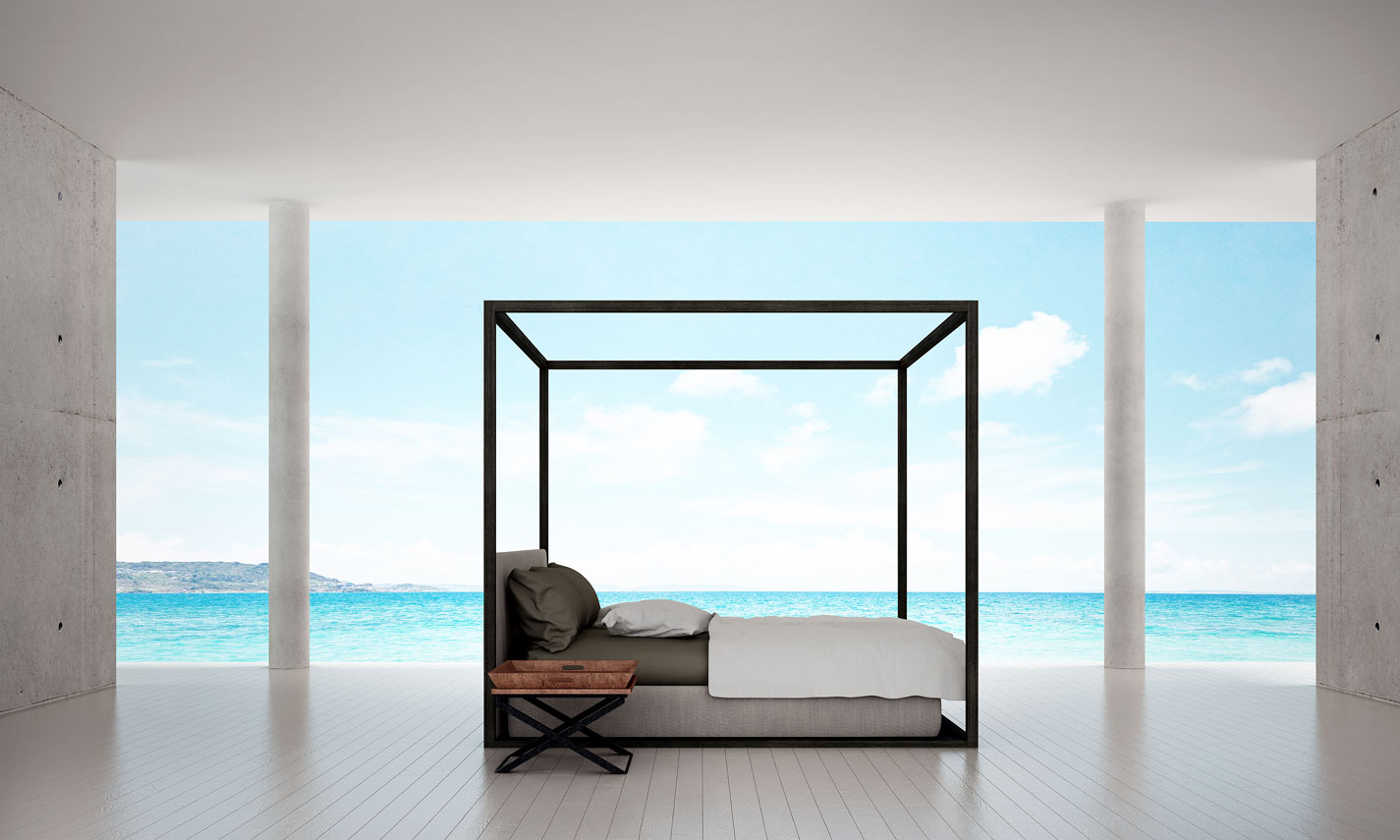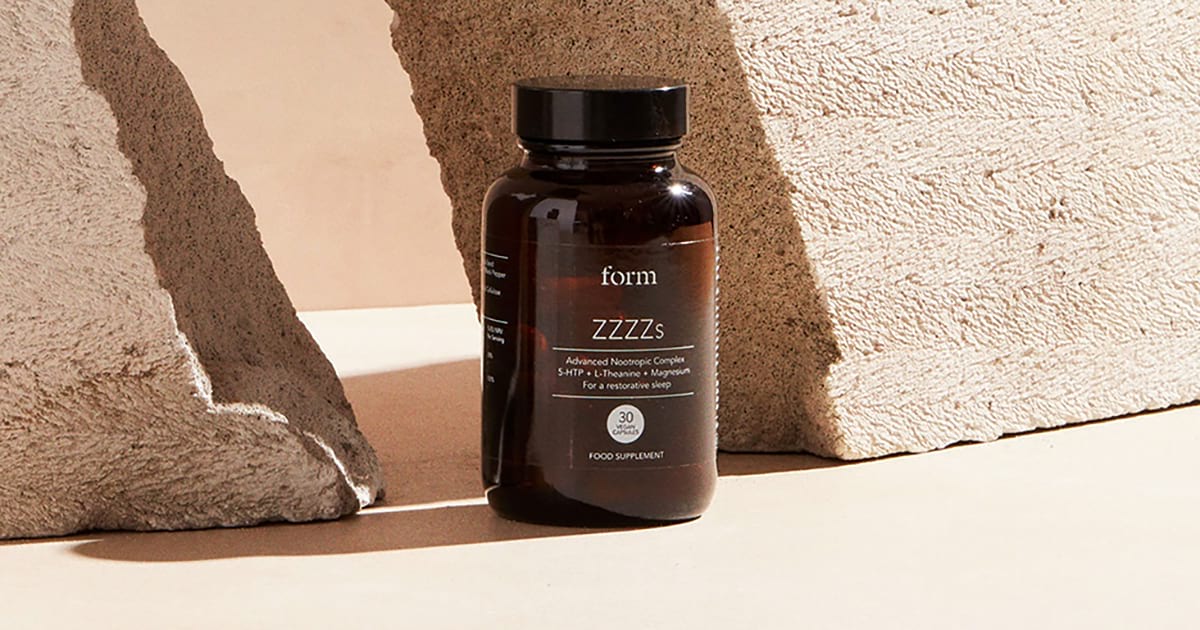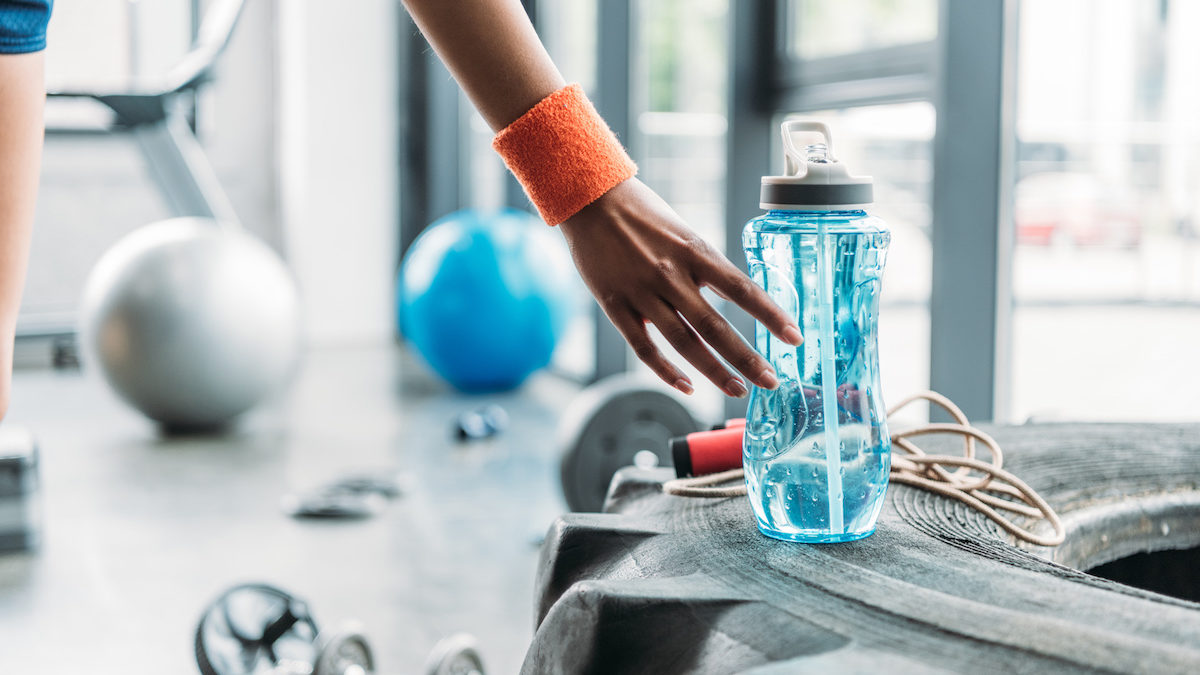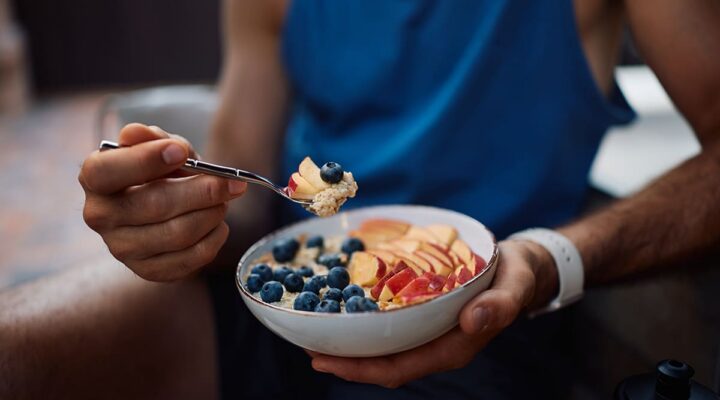How to Get a Good Night’s Sleep When It’s Far Too Hot Outside

Sunshine and longer, brighter days; summer for the most part is a good time all round. But there is one unfortunate consequence: those humid, sticky nights when the air feels thick and falling asleep becomes less of a gift at the end of a hard day, and more like a sweaty chore.
External temperatures can interfere with the natural thermoregulation that occurs during sleep you see, especially in the first two NREM sleep stages when we are more sensitive to temperatures, and as such, more likely to wake up when feeling hot. Optimal room temperature for restful shuteye is between 16 and 18°C, not often achievable without air conditioning. There are, however, some tried and tested ways to cool down and switch off.
Sleep specialist Dr Katharina Lederle has come across a number of these methods through her research. Here, we’ve tapped her expertise for some useful tips to secure good sleep in the heat. Heed her tips to rest easy when it is anything but breezy.
Tips To Help You Get To Sleep In The Heat
Stop Worrying
Sleep anxiety could well be the biggest factor in not being able to fall asleep in hot weather. Go to bed fearing a stuffy night ahead and you’ll likely be hindering your chances of nodding off even more. Stress often disturbs sleep and keeps you in a hyper-aroused state.
Managing your screen time and the consequential melatonin-lowering blue light before bed is one way of combating sleep anxiety. You could also try unlocking the power of aromatherapy either in the form of a pillow spray or a sleep candle — this list of the best essential oils to help you get a better night’s sleep should see you right.
Our favourite route though is down the nootropics and adaptogens path. L-Theanine, one of the most popular nootropics and a key ingredients in our ZZZZs supplement, has been proven to promote relaxation, for example. Just what you need when the “can’t sleep” self-chatter is getting out of control.
Above all, remember that sleep in the heat can be tricky, but it’s not impossible – people in the Mediterranean do it all the time.

Keep Your Curtains And Windows Shut
One way of keeping your bedroom cool during the day and into the evening is restricting the sunlight and hot air that gets into it during the day.
Try opening your window in the evening before bed to see if you can engender a breeze. If it is safe and quiet outside you might want to keep that window open throughout the night.
Otherwise, you should probably invest in a quiet fan. Remember to position it away from your face and make sure it is dust-free.
Stay Hydrated
You should be doing this anyway, but make sure you’re drinking water consistently throughout the day and in the evening. When we sleep there is no fluid intake to make up for the water loss that occurs through breathing, sweating and general bodily functioning. It is believed then that our circadian rhythm kicks in to manage a balanced level of hydration, signalling to your body to produce a hormone called vasopressin that promotes water retention.
If sleep is interrupted or cut short from the heat though, this natural process may be disrupted, with sleep deprivation potentially contributing to dehydration and its nasty symptoms through the day. It’s a vicious cycle, one best solved by drinking eight glasses of fluid a day.
There is a caveat mind. Don’t drink directly before sleep as this can again mess with your sleep cycle. Late night toilet trips are not the one.

Avoid Alcohol
A chilled glass of wine or a pint at your local beer garden are more than tempting on these balmy, summer evenings. But alcohol has been shown to contribute to poor sleep at night. Despite being a sedative with the time to fall asleep often being shorter for drinkers, as the night progresses an imbalance is created between slow-wave sleep and REM sleep. Less of the latter and more of the former decreases overall sleep quality, resulting in both shorter sleep duration and more sleep disruptions.
So if you’re having real trouble getting to sleep, it’s best to exercise abstinence. The same applies to spicy or heavy food.
Change Your Linen
Use thin sheets instead of duvets, and wear thin bedclothes. Some people shower in their pyjamas before going to bed; others put them in a plastic bag and pop them in the freezer to cool down. Cooling the neck and back are also helpful for improving sleep.
“Remember, what works for one person might not help the next,” Dr Lederle advises. “The key is to experiment to discover what works best for you.”
_
Dr Katharina Lederle has a PhD in Human Circadian Physiology & Behaviour from the University of Surrey. Through her work with Clockwork Research, she has advised national and international airlines and emergency helicopter services on sleep and fatigue, and also provides sleep consultancy to a number of businesses. She is a co-founder of Somnia and author of “Sleep Sense: Improve Your Sleep, Improve Your Health”
Form’s ZZZZs capsules naturally promote a restful and regenerative night’s sleep using a mixture of plant-based ingredients and potent nootropics. A capsule 30 minutes before bed enhances serotonin production with 5-HTP, in turn producing melatonin to keep your biological clock in sync. Calming amino acids L-Glycine and L-Theanine, meanwhile, have been shown to reduce sleep onset time and promote relaxation.


















